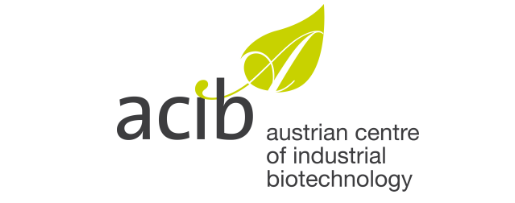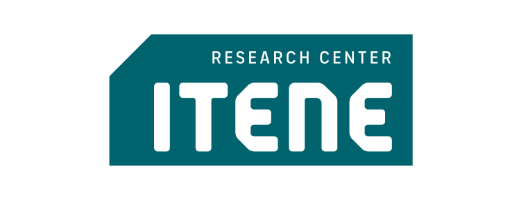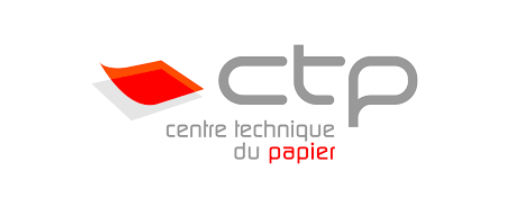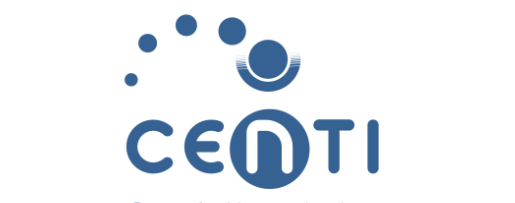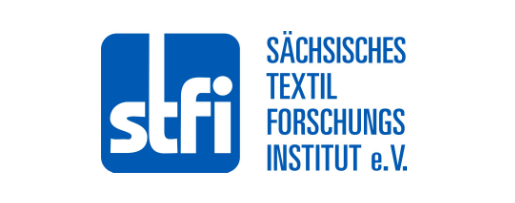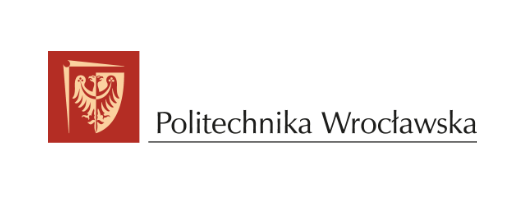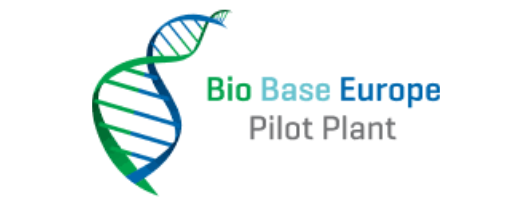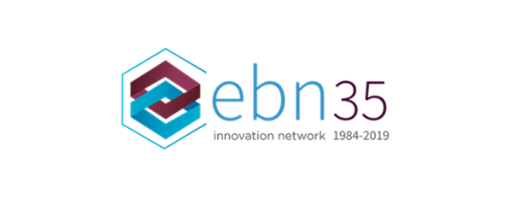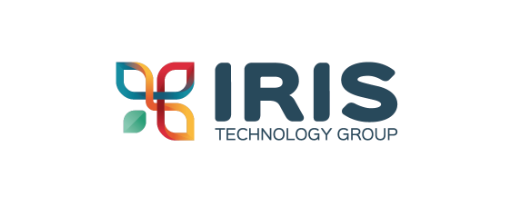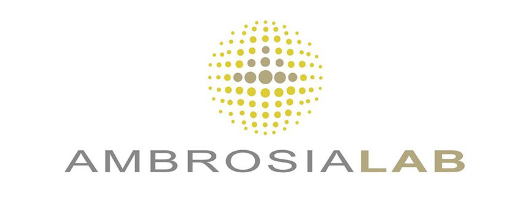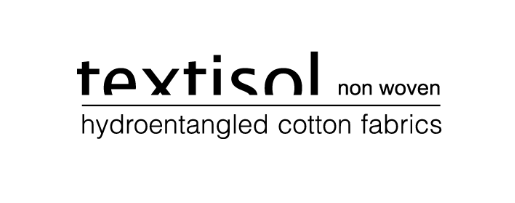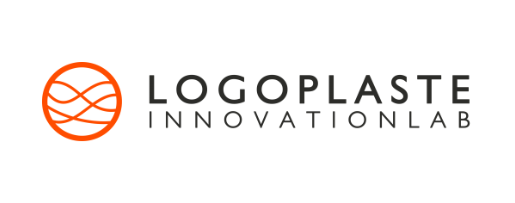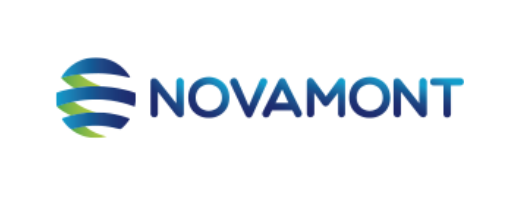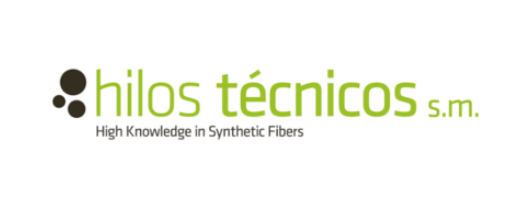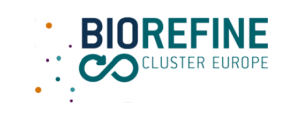Work packages
Objectives:
Settle the framework conditions for the Open Innovation Test Bed (OITB) to make sure that legal aspects, management structure, pricing policy and procedures for stakeholder engagement are in place.Description:
The work package includes all preparatory actions to establish a sustainable Single Entry Point (SEP) for stakeholders. The consortium will assess a legal entity structure as main exploitation pathway for the OITB SEP. A user-friendly webtool will be developed to allow the easy access to the services of Bionanopolys. The SEP will include the capabilities of the pilot lines, the complementary business accelerator services and the information about outreach activities and open calls.Partners involved:
AXIA (Lead), ITENE, AITEX, CID, CTP, CENTI, STFI, ACIB, PWR, IMT, CEA, IRIS, UGENT, BIOT, PARTI, EBN, EBAN, EVER, CELL
Objectives:
Upgrading of enzymatic and fermentative processes for the pre-treatment of biomass and the synthesis of monomers and building blocks as well as the evaluation of the potential of different biomass resources to produce nanomaterials.Description:
In this work package the biomass is going to be characterized and logistics are assessed in terms of transport and storage. The activities will focus on the work of Network 1 and deal with the following pilot lines: The upgrading of the pilot plant of raw materials extraction from biomass (PL1) is going to be demonstrated by the upscaling of bioconversion processes for lactic acid, succinic acid and PHAs. Cellulose with be used for the production of nanofibers, nanocrystals and nanolignins (PL2). Additional pilot plants will be dedicated to the production of block polymers (PL3), of metallic nanoparticles by enzymes and plant extracts (PL4) and of functional nanocapsules (PL5).Partners involved:
CTP (Lead), ITENE, CENTI, ACIB, PWR, CEA, IRIS, UGENT, BIOT, PARTIObjectives:
Upgrading of pilot lines involved in the development of bionanocomposites from the use of the nanomaterials synthesized in WP3, solvents and organic compounds, extracted from different biomass resources.Description:
WP4 will upgrade the existing pilots dedicated to the functionalization of nanoparticles according to the targeted applications defined by industry’s specifications. The key players of this work package are united in Network 2 for the implementation of reactions in liquid and gaseous media for the modification to organic and inorganic nanoparticles, while assuring the quality of produced nanomaterials through online-measurements. Tasks are defined for increasing the dispersion level and the production capacity of nanodispersions for each user case in water and solvent based systems as well as in polymeric matrices and resins.Partners involved:
ITENE (Lead), CID, CTP, CENTI, CEAObjectives:
WP5 is dedicated to the fine-tuning and upgrading of pilot plants to manufacture a wide range of bionanoproducts.Description:
Nanoadditives and raw materials from WP3 as well as the bionanocomposites formulated in WP4 are going to be optimized in this work package and subjected to the Network 3. Pilot lines are going to be upgraded for the particular purpose in industry: materials for thermoformed packaging, for coatings, for cellulosic products, for textiles, for injections and 3D printing or for foamed bionanoproducts. Processes are going to be optimized and characterized.Partners involved:
CENTI (Lead), ITENE, AITEX, CID, CTP, STFI, CEA, IRIS, UGENT, PARTI, AMBRO, HTSM, TEXTI, NOVA, DANI, SMITH, CELL, LOGOP
Objectives:
Providing scientific and technical support by review of the needs and the development of models to predict nanocomposite properties.Description:
The integration of an in-line monitoring system to pilot lines will be an essential part of the work package. As part of the Network 2, the team develops innovative methods for thin layers measurements and homogeneity assessment and works with mathematical and physical models in order to predict the properties of nanocomposites. The access to 3D printing facilities allows a rapid prototyping of bio-based nanocomposites.Partners involved:
CEA (Lead), ITENE, AITEX, CID, CTP, CENTI, STFI, IMT, IRIS, CELL
Objectives:
Demonstration of the technical feasibility of Bionanopolys services and pilot plants verified by 8 industrial cases.Description:
While ensuring a smooth exchange between pilot plants, the following user cases are going to be developed in this work package:- Use case for non-woven fabrics (TEXTI)
- Use case for coated paper roll (SMITH)
- Use case for biodegradable and compostable bioplastics (NOVA)
- Use case for cosmetic formulation/functional food (AMBRO)
- Use case for rigid packaging (LOGOP)
- Use case for thermoformed biobased and foamed products (CELL)
- Use case for flexible packaging for food and other applications (DANI)
- Use case for synthetic fibres (HTSM)
Partners involved:
AITEX (Lead), ITENE, CID, CTP, CENTI, STFI, ACIB, PWR, IMT, CEA, IRIS, UGENT, BIOT, PARTI, AMBRO, HTSM, TEXTI, NOVA, DANI, SMITH, CELL, ILAB
Objectives:
Guide industry towards a safe and sustainable nanotechnology that fosters the development of safe nano-enabled bio-based products from a process, product and regulatory point of view.Description:
This supportive work package guides stakeholders of the OITB by an integrated testing and assessment approach that identifies data and tools in order to assess occupational and environmental risks and to reduce them. According to chemical guidelines and regulations of the particular industrial sector the specific legislative requirements are going to be defined. The team will also assess the environmental, economic and social sustainability of new materials from production to end-of-life.Partners involved:
PARTI (Lead), supported by all partnersObjectives:
Development of the service portfolio on investment and business activities.Description:
The work package is dedicated to the demonstration of Bionanopolys’ variability among end users of the project and to show the methodology to offer these services to potential clients of the OITB. These services include the access to investment, finance and investors, support on business activities and regulation, safety and environmental services derived from WP8.Partners involved:
EBN (Lead), ITENE, CENTI, PARTI, EBAN, EVER, AXIA, AMBRO, HTSM, TEXTI, NOVA, DANI, SMITH, CELL, LOGOP
Objectives:
Launch of the open access Bionanopolys OITB platform.Description:
The implementation of a successful open call includes the development of an evaluation procedure. Subsequently, the transversal services and technical validations are going to be tested and according lessons learned are used for the fine-tuning in order obtain a good practice protocol in the end.Partners involved:
ITENE (Lead), AIT, CID, CTP, CENTI, STFI, ACIB, PWR, IMT, CEA, IRIS, UGENT, BIOT, PARTI, EBN, EBAN, EVER, AXIA, CELL
Objectives:
Build a strong network between relevant stakeholders by using appropriate outreach activities.Description:
A comprehensive dissemination and exploitation plan will give guidance on how to make use of the Bionanopolys dissemination and communication channels while considering a tailor-made exploitation strategy. An interactive platform of the OITB at the Bionanopolys website will be an important tool to engage with stakeholders and to provide the services of Bionanopolys.Partners involved:
ACIB (Lead), supported by all partners
Experts & partners
Our technological partners
Capacity enhancers
Industrial partners
Supported by
Use cases & Industrial applications
- Nonwoven textile applications (Textisol)
- Reinforced and functional paper and cardboard (DS Smith)
- Biodegradable and/or compostable packaging (Novamont)
- Advanced cosmetics and functional food (Ambrosia)
- Bottles to extend the shelf life of food (Logoplaste)
- Foamed biopolymers for light-weight car part and packaging (Cellmat)
- Flexible packaging to extend the shelf life of food (danipack)
- Biodegradables fibers for agriculture applications (Hilos Tecnicos SM)
Nonwoven textile applications
Biomaterials used: CNF, active nanocapsules, metallic nanoparticles
UC1: Cellulose nanofibers will be used as reinforcement and nanolignin will be used as antimicrobial additive on non-woven textiles for personal care and cleaning wipes to improve the final product to make them more environmentally friendly and 100% compostable product UC2: Active nanocapsules with antimicrobial activity provided by the essential oils nanoencapsulated to reduce odours and antimicrobial effect in textiles for personal care (nonwoven textiles).Technical Services:
- Extraction of raw materials (PP1)
- Obtaining cellulose nanoproducts (PP2)
- Metallic nanoparticles obtained from plant resources (PP4)
- Functional nanocapsule production (PP5)
- Modification and functionalization of nanomaterials (PP6)
- Nanocomposite compounding; thermoplastics (PP7)
- Textiles and nonwoven fabrics (PP11)
Other Services:
- Modelling & simulation
- Compostability assessment
Reinforced and functional paper and cardboard
Biomaterials used: CNF, active nanocapsules
UC3: Cellulose nanofibers will be used as reinforcement of paper-based materials in terms of mechanical and barrier properties. Improvement up to 40% and 60%, respectively, are expected to achieve. UC4: Chemically modified and hydrophobic cellulose nanofibers will be used with the aim to obtain new functionalities to the paper materials. Water and grease barrier are expected to reach. UC5: Paper with active properties (antimicrobial and antioxidant) will be developed with the applications of nanocapsules to paper materials by coating. Improvement of barrier properties up to 30% and reduction of antimicrobial load in food products, and oxidation delayed at least 20%.Technical services:
- Extraction of raw materials (PP1)
- Obtaining cellulose nanofibres, nanocrystals and nanolignins (PP2)
- Functional nanocapsules production (PP5)
- Modification of nanomaterials in liquid and gaseous medium (PP6)
- Biobased nanodispersion (PP8)
- Cellulosic products (PP10)
- Coating applications (PP14)
Other Services:
- In-line monitoring
- Food safety evaluation
- Paper recyclability assessment
DS Smith is a leading provider of sustainable packaging solutions, paper products and recycling services worldwide. Over the past 80 years the company has grown dramatically, as have its services and areas of expertise. Today, DS Smith operates in more than 30 different countries, employing over 30,000 people in recycling, paper making and packaging operations. Across around 250 sites the company produces around 4.6 million tonnes of Corrugated Case materials which is then manufactured into 8.8 billion square meters of corrugated boxes. Through its recycling operation globally it manages around 6 million tonnes of fibre for recycling – meaning it is a net positive recycler. The full range of DS Smith packaging products includes corrugated cardboard solutions for e-commerce, FMCG products, premium packaging, POS displays and industrial packaging solutions. DS Smith places R&D&I and Sustainability as two key principals of its investment strategy. With its Now and Next Sustainability strategy and its £100m investment commitment into Innovation, the company is recognised as a leader in the packaging sector. With a commitment to accelerate a move towards a circular economy DS Smith have partnered with leading circular economy experts, Ellen MacArthur Foundation (EMC), to combine the expertise of the two organisations – driving a portfolio of innovative projects that are aligned around circular principals. As well as EMC, DS Smith is engaged in multiple partnerships with strongly R&D oriented organisations including start-ups, universities, laboratories and paper technical centres.
DS Smith owns 15 mills for paper production all across Europe, with a further 2 in the USA, and more than 200 sites for corrugated board productions and converting plants. DS Smith has 169 families of active patents. The patents are related to product and process innovations.
Biodegradable and/or compostable packaging
Bionanomaterial used: PLA-PBS and PHBV-PLA block copolymers, CNF, nanocapsules, nanoclays
UC7: Chemically modified cellulose nanofibers will tune the water-based dispersion to be applied as barrier coating on paper-based substrates;UC8: Nanocapsules will confer various functionalities, e.g. antimicrobial features resulting in extended shelf-life of packaged food and cosmetics.
UC9: Nanoclays will reinforce the biodegradable formulations, increasing mechanical and barrier properties of compostable non-food packaging carrier bags to be reused for organic waste collection.
Technical services:
- Extraction of raw materials (PP1)
- Obtaining cellulose nanofibres, nanocrystals and nanolignins (PP2)
- Functional nanocapsules production (PP5)
- Modification of nanomaterials in liquid and gaseous medium (PP6)
- Nanocomposites compounding (PP7)
- Biobased nanodispersion (PP8)
- Coating applications (PP14)
OTHER services:
- In-line monitoring
- Mathematical modelling
Novamont is an Italian industrial company, in 1990, it is now a Benefit Company, certified B Corporation, world’s leader in the bioplastics sector and in the development of biochemicals and bioproducts from renewable origins. Novamont’s mission is to develop materials and biochemicals through the integration of chemistry and agriculture, by starting up biorefineries in the local areas and providing application solutions that ensure efficient use of resources throughout their entire life cycle, with advantages for the social, economic and environmental system. Its development model aims at building bridges between different sectors and creating new value by collaborating with all the stakeholders in the value chain: from agriculture to research, from industry to waste management, from local institutions to civil society. Guided by these principles, Novamont promotes an approach to bioeconomy based on the efficient use of renewable resources and on the regeneration of local areas, building world-first plants based on proprietary technologies and revitalising industrial sites that are decommissioned or no longer competitive to create new industries, new products and new jobs.
Advanced cosmetics and functional food
Biomaterials used: CNF/CNC, active nanocapsules, biobased personal care formulations
UC10: CNF/CNC will act as film forming agent, thickening and moisture-retaining in cosmetics formulations, substituting fossil-based additives. UC11: Nanocapsules will act as delivery systems being a vehicle of active agents to provide, i.e. antimicrobial, antioxidant, antiwrinkle and moisturizing properties to cosmetics formulations with measurable improvements with the aim of replacing chemically produced delivery systems. Objective; better performance in terms of bioavailability of the ingredients to be delivered through innovative and sustainable technology. UC12: Functional food will be developed by the application of active nanocapsules to different food productsTechnical services:
- Extraction of raw materials (PP1)
- Obtaining cellulose nanofibres, nanocrystals and nanolignins (PP2)
- Functional nanocapsules production (PP5)
- Modification of nanomaterials in liquid and gaseous medium (PP6)
- Biobased nanodispersion (PP8)
Other Services:
Legal support: Evaluation of compliance to EU regulation 1223/2009 for cosmetic applicationAmbrosialab is a research spinoff company of the University of Ferrara. It is a research and development company operating in the field of life sciences and biotechnology, founded in 2003. Ambrosialab develops prototypes of dermocosmetic products and medical devices starting from innovative concepts, often unique and patented, passing from their design to the realization of small pilot productions, necessary for efficacy and stability tests according to EU and USA compliance of the finished products. The prototypes are then industrialized and marketed in partner companies. Ambrosialab supports, through scholarships and research grants, basic university research in the field of oxidative stress and related effects. The strength of Ambrosialab lies in its network of industrial production partnerships, in Italy and abroad. Ambrosialab also deals with the quality and effectiveness verification phases, necessary for the production and commercial phase of products developed at its partner companies. These networks have been increasingly consolidated over the years of activity. Ambrosialab is part of the Gree-Cluster (a temporary joint venture) in between 5 other companies devoted to the sustainable development of food, cosmetics and packaging (basically following LCA approaches and CtoC rules.
Bottles to extend the shelf life of food
Block copolymers (PLA-PBS, PHBV-PLA), CNF, modiGed natural clays and active nanocapsules or metallic nanoparticles and their nanocomposites; compostable packaging for food and personal care applications
UC13: Bottle for personal care products by co-extrusion blow moulding reinforced with active nanocapsules with the aim of increasing the shelf life of the packaging solution. Shelf-life extension with respect to biodegradable base material. UC14: Bottle for food applications (e.g. sauces) performed by injection stretch blow moulding (ISBM) with biodegradable biopolymers reinforced with nanocellulose and/or nanoclays to improve barrier. Reduction of OTR and WVTR with respect to biodegradable base material. Both packages 100 % compostableTechnical services:
- Extraction of raw materials (PP1)
- Obtaining cellulose nanofibres, nanocrystals and nanolignins (PP2)
- Metallic nanoparticles obtained from plant resources (PP4)
- Functional nanocapsules production (PP5)
- Modification of nanomaterials in liquid and gaseous medium (PP6)
- Nanocomposites compounding (PP7)
- Injection and 3D printing (PP12)
Other Services:
Food safety and compostability testsLogoplaste is an industrial group, manufacturing rigid plastic packaging for some of the most reputable companies in the world, in the food and beverage, personal care, household care and oil and lubricants sectors. Founded in 1976, for over 40 years, the company has pioneered in-house manufacturing in Europe and beyond with the „hole in the wall“ concept, supplying plastic bottles „just-in-time“ from factories installed directly on the site of the client. Today, Logoplaste manages more than 60 factories, with locations in 16 countries: Brazil, Belgium, Canada, Czech Republic, France, Italy, Mexico, Netherlands, Poland, Portugal, Russia, Spain, Ukraine, United Kingdom, USA and Vietnam. The most up-to-date technologies in injection molding, stretch-blow molding and extrusion molding are used to produce packages across the wide range of market segments.
Logoplaste innovation lab is a specialised division of the Logoplaste Group, exclusively dedicated to the research and development of tailor fit packaging solutions, offering a holistic and agnostic (technology and materials) vision of packaging development, addressing all the variables of the innovation process, fulfilling a user need supported by the best technology and the most viable business model, abide by the most demanding sustainability requirements.
Foamed biopolymers for light-weight car part or packaging
Biomaterials used: CNF, nanolignin and nanoclays, foamed products
UC15: Thermoformed foamed trays for food packaging, with improvements of up to 20% extended shelf life and 20% mechanical properties (or 20% weight reduction at the same mechanical performance). UC16: Foamed packaging based on bioexpanded beads, improvements of 10% in thermal resistance and 20% mechanical performance (or 20% weight reduction at the same mechanical performance) are expected. UC17: Complex shaped foamed parts for the automotive sector with improvements similar to previous product.Technical services:
- Extraction of raw materials (PP1)
- Obtaining cellulose nanofibres, nanocrystals and nanolignins (PP2)
- Modification of nanomaterials in liquid and gaseous medium (PP6)
- Nanocomposites compounding (PP7)
- Foam applications (PP13)
Other services
Rapid prototypingCellMat Technologies: Foamed products (eg for packaging, automotive, thermal insulation)
CellMat Technologies (www.cellmattechnologies.com) is a technological company intensive in R&D activities whose main business activity is based on helping industrial partners to improve their processes and products. It is also specialized in the development of new foamed products and foaming technologies, in offering a service of foaming pilot-lines to foam manufacturers, in the development of sustainable technologies and in the transferring of know- how and licenses to industrial companies. The two areas of expertise of the company are cellular materials and biopolymers. It was founded in 2012 by researchers of the Cellular Materials Laboratory (www.cellmat.es) of the University of Valladolid. It is an exemplary company in the development of activities towards transferring knowledge from academia to industry. Currently, the company is a global benchmark in the field of cellular materials and has become a strategic partner for several key industrial players in the field of polymer foams.
Flexible packaging to extend the shelf life of food
Biomaterials used: Block copolymers (PLA-PBS and PHBV-PLA), CNF, active nanocapsules, modiGed nanoclays/ compostable and recyclable packaging for food applications
DANIP will develop two products of flexible packaging for food applications, 2 laminated film ranging from 6 to 200 μm to be thermoformed for vacuum packed applications (meat and cheese), with two different objectives: UC 18: recyclable solution reinforced with nanocellulose and/or nanoclays to achieve high barrier performance, (reducing the number of layers). Also, active nanocapsules will be incorporated to release active agents (antimicrobial and/or antioxidant) to increase the shelf life of food products UC19: a compostable solution based on bionanocomposites developed by using biodegradable polymers reinforced with nanocellulose and/or nanoclays to achieve high barrier performance and with active nanocapsules with the aim of increasing the shelf life of the packaging solution. Reduction of OTR and WVTR up to 15-25% and active packaging to extend shelf-life up to 20% respect to non-biodegradable material, to reduce the number of layers or thickness in multilayer systemsTechnical services:
- Extraction of raw materials (PP1)
- Obtaining cellulose nanofibres, nanocrystals and nanolignins (PP2)
- Functional nanocapsules production (PP5)
- Modification of nanomaterials in liquid and gaseous medium (PP6)
- Nanocomposites compounding (PP7)
- Biobased nanodispersion (PP8)
- Rigid and flexible packaging (PP9)
- Coating applications (PP14)
Other Services:
- In-line monitoring
- Food safety
- Compostability tests
- Recyclability studies
Danipack is a Portuguese Leader in production of films for Food Packaging, equipped with state of art technology of extrusion up to seven layers, providing solutions of gas barrier, high speed packaging, using materials such Polyethylene, Polypropylene, Polyamide, EVOH and PLA. Danipack was founded in 2016, with experienced team from film sector. With a turnover over 65 Million €, with export rate of 40%, Danipack employs around 180 persons. The mainly films application is for lamination converters, and food industry like thermoforming films and vacuum pouches. All films for food contact are under BRC certification.
Biodegradable fibers for agriculture applications
Biomaterials used: CNF, active nanocapsules, compostable synthetic Gbres
UCM20: synthetic fiber produced with biodegradable materials reinforced with CNF by reactive extrusion for agricultural applications. 100% compostable and biodegradable in soil at least 80%. UCM21: synthetic fibers produced with biodegradable materials and coated with active nanocapsules including agrochemical to be released in a controlled manner. 100% compostable and biodegradable in soil at least 80%, reducing conventional agrochemical treatments by 20%Technical services:
- Extraction of raw materials (PP1)
- Obtaining cellulose nanofibres, nanocrystals and nanolignins (PP2)
- Functional nanocapsules production (PP5)
- Nanocomposites compounding (PP7)
- Biobased nanodispersion (PP8)
- Textiles and nonwoven fabrics (PP11)
- Coating applications (PP14)
Services:
- Mathematical modellling
- Compostability assessment
Hilos Técnicos S.M., S.L. (HTSM), located in Barcelona, began its activities under the direction of Mr. Jordi Sánchez Busquets, a pioneer in Spain in the manufacture of synthetic technical yarns (Monofilament, Multifilament and Raffias), with more than 50 years of Experience in the sector. Since its origins, the company has developed its own technologies and production processes, always betting on new technological advances. Hilos Técnicos S.M., S.L. manufactures and distributes the highest quality yarns. HTSM has extensive experience in plastic extrusions, we manufacture Monofilaments, Multifilaments and Raffias of different strengths with top quality materials.











